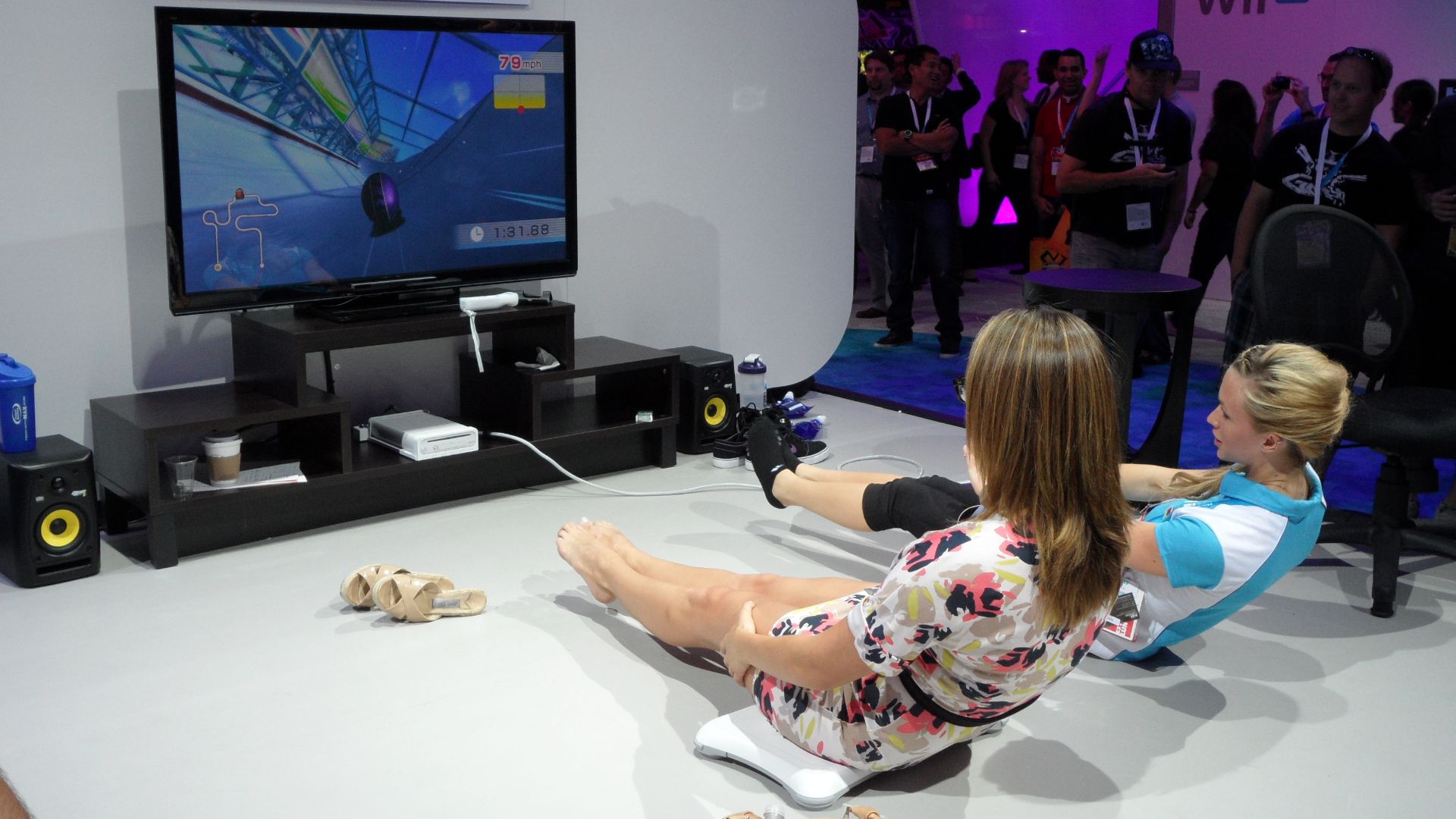 The original uploader was JayKeaton at English Wikipedia. on Wikimedia
The original uploader was JayKeaton at English Wikipedia. on Wikimedia
Since its launch in 2006, the Wii succeeded in doing something few consoles could ever dream of: it got players off the couch. Sure, the movement required to make your Mii bowl of play baseball wasn't exactly a workout, but some movement is better than no movement. An exercise-based game was the logical progression of the Wii's success.
Wii Fit was well-intended. Meant to make exercise into something fun that families could do together, the game quickly became one of Nintendo's bestsellers of all time. However, the success of Wii Fit came with unforeseen consequences.
Good Intentions, Bad Consequences
Using a balance board in addition to the controller and nunchuck, Wii Fit focused on balanced-based activities. Nobody was going to turn into an Olympic athlete just from using it, but it got your blood moving. Wii Fit focused on player's center and balance and posture.
Minigames were divided into two main categories: Yoga and Strength Training, and Aerobics and Balance Games. The first category included simple yoga poses and exercises such as planks and lunges. The aerobics and balance games included hula hooping, ski jump, and tightrope walking.
If that was the extent of the gameplay, nobody would have had a problem with it. However, to encourage routine exercise (and routine play), Wii Fit had a fitness tracker. In order to play the games, you first had to enter some personal data.
After attaching their age and height to their Mii, players than stood on the balance board while it calculated their weight and balance. Once all the tests were complete, players were presented with their body mass index (BMI) and a "Wii Fit Age". The Wii Fit Age was a number meant to represent your age in accordance with your fitness—healthier people would score lower.
Even at the time of Wii Fit's release, there was debate over whether BMI was a useful measurement at all. BMI only tracks your base weight, not taking into account muscle weight or overall health. Crucially, it was designed to measure adults.
Nintendo released the Wii as a family console. Even mothers who otherwise refused to buy their children video games for fear of rotting their brains had fun playing Wii games. The people who were most affected by Wii Fit were its youngest players.
It also didn't help that the balance board bore striking resemblance to a bathroom scale. Almost 20 years after Wii Fit's release, many players are unable to let go of the shame and body-checking Wii Fit encouraged in them as children.
Perhaps the most insidious part of the process was that if the game deemed you overweight or obese, your Mii would reflect that. The player character would puff up with like a balloon then look around in confusion. It was accompanied by a depressing, yet comedic musical sting.
The body test worked about as accurately as you would expect from a video game meant to challenge balance. It assigned categories arbitrarily; even if you were at a "healthy" weight outside of the game, Wii Fit could still categorize you as overweight.
A Lasting Impact
 Esby (talk) 21:04, 17 October 2010 (UTC) on Wikimedia
Esby (talk) 21:04, 17 October 2010 (UTC) on Wikimedia
Every time you logged on, the game would display your progress, not only in the number of days played, but in weight variations. "A particularly unbalanced lifestyle could lead to fat accumulation...and even trigger a condition known as metabolic syndrome" the game would warn you.
It should go without saying that a scale designed to measure adults would already be flawed in measuring children. It should also go without saying that a child's weight fluctuates greatly, especially during growth spurts and/or puberty. And yet, millions of children around the world were being told that they were obese even if they were underweight.
Children have enough pressure put on them to stay active and internalize good habits from a young age. This is especially prevalent in those who grew up in the early 2000s when society was still weaning off the heroin chic trend, and anyone over a size 4 was seen as morbidly obese.
The world is cruel enough to chubby kids. Video games at least should offer an escape from reality, not encourage disordered eating and thoughts.








